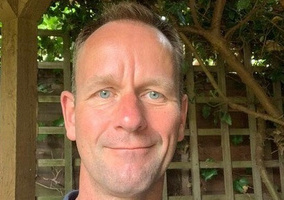A new report has encouraged charities to stop “pigeonholing” people with lived experience of the refugee system in frontline and lower-status roles rather than helping them progress into leadership positions.
The Refugee Council report says there are “significant gaps” between the rhetoric and reality of organisations’ commitment to the career development and progression of staff with lived refugee experience.
In collaboration with WRKWLL, the research is based on 23 in-depth interviews and workshops and looks at the experience within the Refugee Council and across the refugee and migration sector.
The report says there is also “a sense that charities may not have placed enough emphasis on the importance of structured approaches to career development, especially among those with lived experience”.
It flagged particular challenges facing smaller organisations within the sector.
“Interviewees and workshop participants highlighted that there are significant gaps between the rhetoric and reality of organisations’ commitment to the career development and progression of colleagues with lived refugee experience,” it says.
Structural racism
Interviewees reported that the refugee and migration sector is not impervious to structural racism and bias.
Indeed, the report says a prevalent self-perception within the sector of being intrinsically values-led, can make it awkward to acknowledge and address challenges in relation to equality, diversity, inclusion and belonging.
The report adds there was a strong sense that a hostile societal backdrop, structural racism and unconscious bias strongly permeate organisational and sectoral contexts.
“There, it meets with fixed mindsets and entrenched power structures to hinder systems change and therefore severely limit the career progression of individuals.”
The research highlights the ways in which structural barriers interact with the culture, policy and practice of individual organisations to form an additional tier of barriers to career progression among those with lived refugee experience.
“There was a strong sense that it is at the organisational level that change can and should happen most urgently.”
It says organisations have the potential both to proactively challenge the wider structural context and to respond and adapt to individual-level factors that form barriers to individual career progression.
Charity sector issues
Participants also highlighted the under-representation of staff with lived experience at charities, as well as a broader lack of diversity at senior levels (both at the Refugee Council and other organisations in the sector).
The report says this reinforces perceptions that power remains ringfenced for those who have traditionally held it and that there is a lack of role models for colleagues with lived experience looking to progress in their careers.
Many also considered the rigidity of requirements to demonstrate qualifications and experience acquired in the UK to be “harsh”.
“There was particular frustration about this barrier given the sector’s understanding of the circumstances in which many colleagues with lived experience of the refugee protection system may have arrived in the UK,” it says.
These requirements may deter staff with lived experience from applying for roles to which they know they could offer a wealth of experience, the report states.
“This is another factor which can lead to people remaining pigeonholed in frontline and lower status roles,” it says.
As part of its next steps the charity will be developing initiatives to address the barriers highlighted in the report, with potential areas to look at including coaching, mentoring and peer support networks, transparent internal recruitment processes, and other areas.
Related Articles












